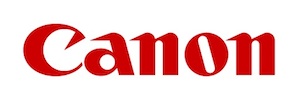I’m Ken Schmidt; I’m a former Communication Director at Harley Davidson Motor Company in Milwaukee, Wisconsin, still a big part of the business there. It’s a business I love and know an awful lot about. I’m here at the App Forum put on by PODi in Las Vegas, Nevada; a fantastic event. I just was lucky enough to get asked to get up and speak to the gathering here this morning comprised largely of printers looking to change their businesses to be more – to do a better job of cross selling within organizations and to bust out of the old model of traditional printing as well as direct marketing people and marketing people within companies across America.
Now, what I was talking about today was kind of sharing some stories about what smart, driven and successful businesses needed to do to regain their competitiveness and to become more competitive in the markets that they serve. And the stories that I told anecdotally about what we did at Harley Davidson resonated with printers because the whole gist of what I spoke to was building competitiveness, creating differentiation in the marketplace and creating loyalty among the people we serve by not focusing on traditional messaging and traditional channels and traditional focus of business. The need to be visibly different in front of the people that you serve in order to make sure that they know what you’re doing is different, that’s it’s valuable, that it’s desirable, that it works and that it’s not based or hinged on old ways of doing things.
What I found as somebody who has spent many, many millions of dollars on printing over the last 28 years with working with Harley Davidson and before that, is that print businesses tend to compete the same way most other businesses in the world do. Which I don’t say that in a flattering way, I say that in a troubling way because the way print firms have come in and attempt to sell me or other people within the organization, would rely on – the way they would sell, would rely on the same techniques they’d always used before and talking about things from a competitive standpoint that were virtually identical to the things that their competitors were talking about and trying to build competitive advantage on things that I, as a customer or potential customer, would totally take for granted.
If a printer was trying to sell me something and telling me about how wonderful their new Heidelberg 16-color press is, I know very, very well that the next printer that comes in is going to say the exact same thing extolling the virtues of their printer and about the quality of the finish work and how satisfied I’m going to be and never realizing that virtually every person that comes in is attempting to sell me, is saying the exact same thing because we learned that at Harley that when we behaved the same way as your competitors did. We entered markets using the same language, the same go-to-market strategies as they did. We essentially commoditized ourselves right out of jobs, right out of an industry because we became them. And once we became them we gave people no reason to do business with us. There was not striking, desirable thing about us versus our competitors. Essentially then, the marketplace went to the lowest priced stuff they could find. And what I always tell people is if you’re losing a sale to somebody consistently based on low price, then you’re doing something seriously wrong. They have no emotional attachment to you whatsoever, you haven’t given them a reason to do business with you, so therefore; they’re blocking you right out of the equation, engaging their brain, and taking a lower priced vendor or partner to do business with.

 Official camera partner of WhatTheyThink and the drupa daily.
Official camera partner of WhatTheyThink and the drupa daily. 












